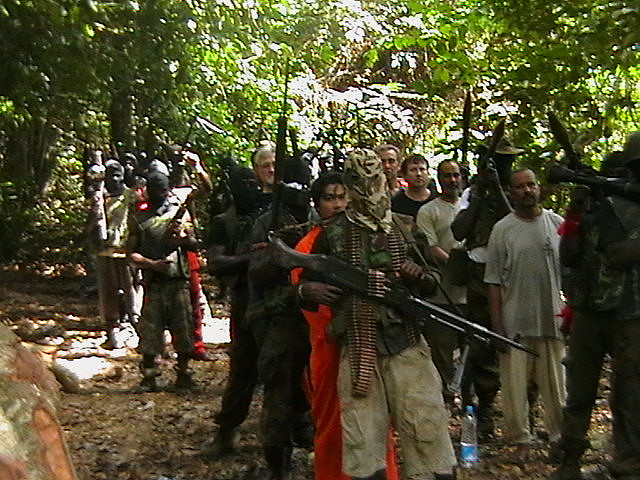“When amnesty becomes stale”
April 16th, 2013 Offering amnesty is one option for governments dealing with insurgents, says Olajide Omojarabi, 25, a Correspondent from Zaria in Nigeria, but he cautions against sending the wrong message to the public.
Offering amnesty is one option for governments dealing with insurgents, says Olajide Omojarabi, 25, a Correspondent from Zaria in Nigeria, but he cautions against sending the wrong message to the public.
Just before his death, late president Yar’adua of Nigeria granted amnesty to the militants terrorizing the southern part of the country at that time.
The insurgent group, in replacement for freedom and pardon, surrendered their arms to the Nigerian government. Before the amnesty, however, the group had launched series of terrorists’ attacks ranging from kidnapping and killing to bombings of socio-political gatherings and pipeline destruction.
They engaged in these dastardly acts, which they referred to as agitation, to constantly remind the Nigerian government and international community about the gradual ruin and decay of the environment due to crude exploitation and mineral processing activities.
While these insurgent groups were dropping arms in the south after the granted amnesty, the Boko Haram insurgent group began gathering momentum in the north. Bombings of churches, schools, media houses, government structures and banks were prevalent. Security agents were killed as protest against western civilization and in favour of an Islamic Nigerian state. Their attacks were becoming pervasive and devastating. They were so dreadful that the name alone sent shrills down the spines of Nigerians.
The Nigerian government at this period declined amnesty. According to press statements from the presidency, amnesty could not be granted to faceless individuals, or to groups who terrorize without genuine causes.
The insurgency persisted with more sophisticated ammunition, swift hit-and-run tactics and increased number of suicide bombers. It all led to daily severe loss of lives—civilians, politicians, security agents—and destruction of property worth millions. Some notable clergy, traditional chiefs and politicians pleaded for the federal government to adopt amnesty and salvage the country from the reigning terror. Others, notably Christian clerics and families of affected Nigerians, dissented from this opinion, saying amnesty to the group meant injustice for lost lives, and a lost war for the Nigerian military and Nigerian government.
The government defied any debate to consider amnesty. It has since begun preparation to facilitate the feasibility of the program. While this is in progress, the dailies report the group is rejecting amnesty; apparently standing ground on their demands.
What if Boko Haram accepts amnesty? I have been wondering. Does it mean the Nigerian government has been reduced to the level of granting pardon to any insurgent groups, regardless of death and destruction caused? If this is the case, then danger looms. It goes to confirm the saying that a problem solved by starting from the top without trashing the basis will soon be resurfacing.
The Nigerian youths make up a significant proportion of the country’s population. They are both gregarious and vulnerable. Increasing unemployment and mixed feelings about the socio-economic system only makes them susceptible to any form of protest; any agitation. We must remember terrorism is not only limited to killings, bombings and kidnappings. Cyber-crime, narcotic consumption, suicide and silent scourge are all forms of terrorism that could be used to send messages of frustration, and loss of belief in the system of a society. If the Boko Haram eventually accepts the government’s offer—still wondering—what happens next? Does the government just fold its arms and wait for another insurgent group to sprout, and then dish out amnesty like a piece of cake?
Amnesty means forgiveness and pardon. This pardon comes with assuring packages like provision of scholarships, skills training and job placement to guarantee full adoption of the culprits into the system. It gives them a more beautiful life than they previously had. If this is perceived by the raging, discerning youth of a nation as the easy way to a fuller and more rewarding life, then insurgency looms large in the sky.
The Nigerian government must realize that insurgency is the failure of a system. It cannot be tackled by collecting arms with one hand and giving out material comforts with the other. The deep-rooted causes must be trashed and tackled; otherwise, amnesty will become so stale that groups will resist it the way malaria resisted quinine.
Photo credit: <a href=”http://www.flickr.com/photos/securitywatch/2470864584/”>International Relations and Security Network ISN</a> via <a href=”http://photopin.com”>photopin</a> <a href=”http://creativecommons.org/licenses/by-nc-nd/2.0/”>cc</a>
…………………………………………………………………………………………………………………
About me: I am an active, involved student. For two years I have been president of a student leadership organization called ENACTUS. Before university I was an on-air radio presenter for a live program that cuts across all areas of interest to Nigerian youths.
I look forward to being an expert in African studies, proffering solutions to Africa’s most raging problems through my intense interest in writing, community service and public speaking. Currently, I am a student of International Studies at the Ahmadu Bello University.
…………………………………………………………………………………………………………………
Opinions expressed in this article are those of the author and do not necessarily represent the views of the Commonwealth Youth Programme. Articles are published in a spirit of dialogue, respect and understanding. If you disagree, why not submit a response?
To learn more about becoming a Commonwealth Correspondent please visit: http://www.yourcommonwealth.org/submit-articles/commonwealthcorrespondents/
…………………………………………………………………………………………………………………




